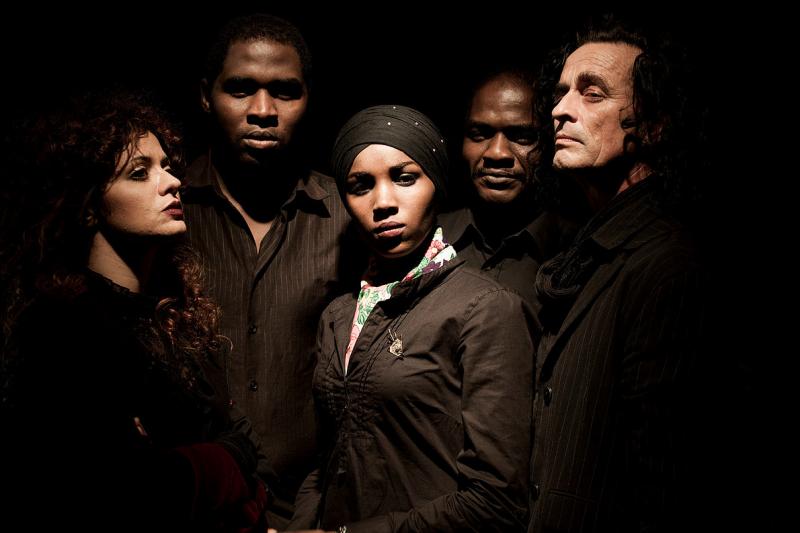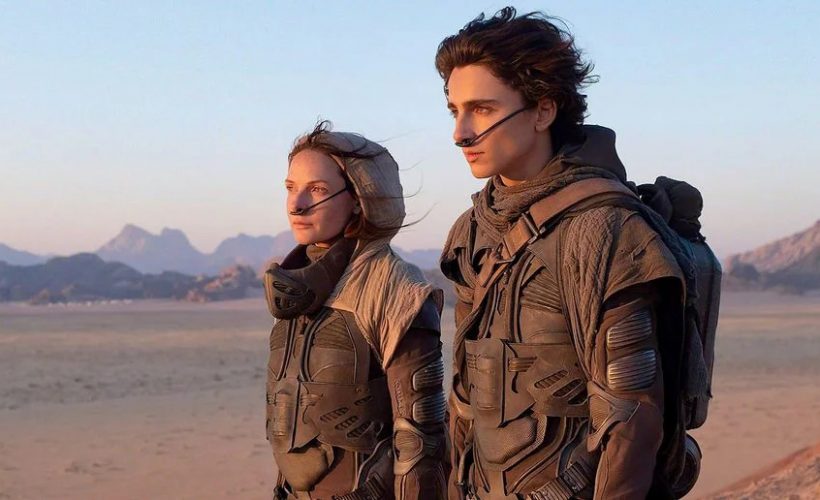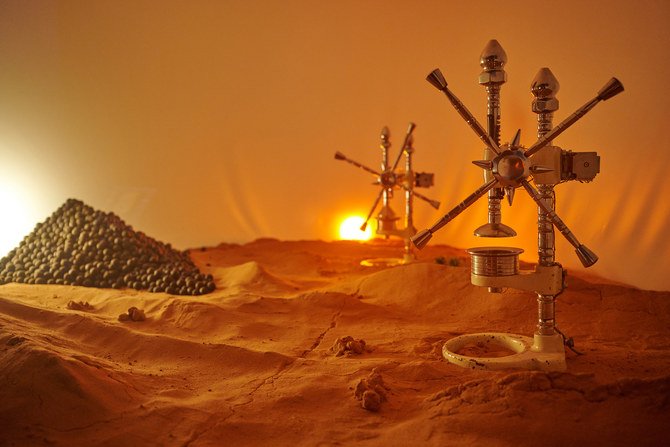Lifestyle
12.9.2019
Electric Ifriqiyya, mystical and sound explorations in the heart of Maghreb

On November 30th, the Institute of Islam Cultures of Paris received the Ifriqiyya Electric Band. A sound exploration at the heart of the mystical rituals of North Africa for an exhilarating ethno-musical immersion.
The history of Ifriqiyya Electric is intimately related to the one of unknown territories enchanted discovery. At the crossroads of music and ethnography, its universe combines the rhythms of former North Africa slaves mystical rituals to post-industrial sounds.
Carried out by François Cambuzat and Gianna Greco, two musicians who met long ago on distant roads, Ifriqiyya Electric has come a long way since its creation in 2016. To begin, a layover in Tunisia, in the Djerid desert, in the southwest of the country. There, the descendants of black slaves from North Africa still practice possession rituals in a sort of musical and physical “trance” called the Banga de Tozeur. From this trip was born the first album of the group in 2017, “Rûwahîn” (the spirits), which placed itself at the 4th place for the best album in the world music category in the United States.
Today, they start the second part of their journey and transport us to the Algerian Dîwan and the Moroccan Gnawa with their latest album Leylet el boree. A universal spiritual experience to rise and to forget oneself.
Can you remind us of the genesis of the Ifriqiyya project? And tell what made you decide to explore the mystical banga music of the Tunisian desert?
It goes back a long time ago. At first, we had a sound project in Mongolia, during which a Kazakh friend talked to us about Xinjiang, a Muslim zone in China where the Uighurs community is currently being persecuted. Our friend informed us about the presence of shamanic rituals there. We wanted to learn about those rituals so we contacted a researcher specialized in the syncretism between Islam and shamanism and we made the first movie on this topic. The film was so successful in the field of ethnomusicology, that we have been called the Jean Rouch (a French ethnologist) of Rock & Roll. Then the French Institute of Tunis contacted us and asked if we would be interested in doing a similar project in the region. I already knew the Stembali Tunisian music but I thought it lost its soul by becoming a bit too touristy and folkloric. But an ethnomusicologist friend told us about the Djerid Banga in the salt desert and we decided to settle there for several months to explore.
What do your ethnological and musical explorations look like?
It consists of immersing ourselves for several months in unknown regions, doing field recordings and learning new musical repertoires such as Banga, Stambali, dîwan or Gnawa. But Ifriqiyya Electric is the name of a Trans-Aeolian Transmission film that is not a musical project at the base, but a video one and whose purpose is to keep track of the musical legacy of distant tribes so that their essence is not lost because of tourism or money. We did it initially in Xinjiang, then in Tunisia with Ifriqiyya electric As soon as we put the trailer of the movie on the Internet, several famous international festivals contacted us to perform on stage.
How did you welcome this success?
Initially, we did not want to play this music on stage, then we realized that the music did not belong to us but to the community, so we asked the old wiseman of the community. We told him that it would bring money to the community, but that by shedding light on the music, it might lose its spiritual essence. We gave him time for reflection and he came back to us saying that it woulda good thing for the community. This is how we transformed from a movie to a band. All the main Tunisian festivals contacted us and we toured all over the country, then in Denmark with musicians chosen by the Wiseman himself. It was a real cultural shock for the musicians to go from 40 degrees in Tozen to 22 in the middle of Denmark.
How did the tour and the first album benefit to the community? And how did the project evolve today?
There is huge racism in Tunisia towards black people. This tour helped to promote this community and the musicians were well paid. For three years, we toured with musicians who changed regularly for personal reasons (weddings, illness), but during the last huge promotional tour of the new album, the musicians did not feel it anymore and we also wanted to do something else. The group evolved from a human perspective and geographically with two newcomers, Boualem from Algiers and Simoh from Morocco, which allowed us to extend our research on elevation music in the whole Maghreb region, with Algerian diwan and Moroccan Gnawa.

What did you learn from this experience?
Initially, we are atheist and ultra Cartesian people with a lot of preconceptions on religion but a lot of sympathy for faith. What we liked the most about those rituals is the connection they create within the community. If those who practice them know that they cannot cure appendicitis with Banga music, they think they can heal the sadness and the weight of life. For women, it’s also a time when they have space to be what they want. In the evening, the old Wiseman calls the Banga affiliates (about 400 people) to find out who is available and they travel for free, sometimes hundreds of miles away, to bring these possession ceremonies to people. And it’s totally free, they do not ask anything except the over of their travel expenses. What also strikes us is that teens also learn Banga, which shows that there is a real transmission within this community.
popular

